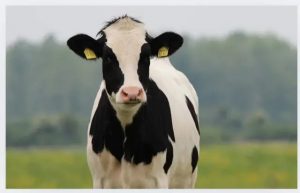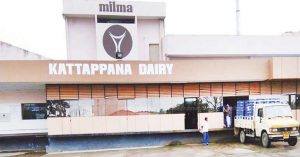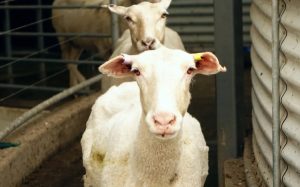Pointing out that five per cent of milk co-operative societies in Gujarat and 56 per cent of those in Uttar Pradesh were dysfunctional, Union Minister for Cooperatives Amit Shah on Sunday said that legal changes should be brought about to liquidate non-operational cooperatives and form new ones in its place.
Speaking at an event to mark the golden jubilee celebrations of Anand-based National Cooperative Dairy Federation of India Limited (NCDFI), Shah said, “In Gujarat, there are 19,000 co-operative societies of which 18,000 are functional. Uttar Pradesh has 16,000 cooperative societies of which only 7,000 are operational. A big state like Uttar Pradesh can produce milk enough for the entire country. In such a state, all the possibilities are yet to be explored.”
“I want to ask NCDFI to map all the possibilities (for milk production) and find out hurdles in each state. We have to do this, keeping the state governments together. If a milk co-operative turns bankrupt, then a second one cannot be formed… We have to change the law to allow new co-operatives to be formed where existing ones become dysfunctional. The old can be liquidated as per the principles of bankruptcy,” he said at the event held at National Forensic Sciences University (NFSU).
Union Minister of State for Co-operation BL Verma, NDDB chairman Meenesh Shah and RBI director Satish Marathe were present.
Shah pointed out that despite good water availability and fertile soil, the milk production potential in states of Uttar Pradesh, Madhya Pradesh, Jharkhand and Bihar is yet to be tapped. “Small problems have created hurdles in these states,” he said.
सहकारिता आंदोलन ने न सिर्फ दूध उत्पादन के क्षेत्र में भारत को आत्मनिर्भर बनाया बल्कि भारत की आने वाली पीढ़ियों को पोषण युक्त बनाकर न्यूट्रीशन की समस्या का समाधान किया है। और इसमें NCDFI व दुग्ध उत्पादन समितियों का अहम योगदान है। pic.twitter.com/Pm8LVRBEdE
— Amit Shah (@AmitShah) April 10, 2022
Asking NCDFI to draw a plan for targeting higher exports of milk and milk products, Shah said, “If milk production increases, then we have to sell it across the world at competitive prices. At present, we have banned milk imports and so one can easily increase milk prices. But when we enter the global markets, there will be competition and will have to bring down the production costs.”
The headquarters of NCDFI is at Anand and it was set up with the aim to coordinate, help, develop and facilitate the working of dairy and oilseeds growers cooperatives and affiliated organisations dealing in commodities.
The Union minister said that development of higher milk yielding cattle breeds, getting additional income using cow dung, decrease in milk processing and cattle feed costs can help in reducing milk production costs in India.
Digitalising PACS
Shah said that by end of December, his ministry will begin pilot project for digitising Primary Agricultural Co-operative Societies (PACS) in the country. “In order to digitise all the 65,000 PACS at a cost of Rs 350 crore, the software used for PACs will be used for district banks, state co-operative banks and NABARD. The entire system will be online and will become transparent. By December this year, we will starting pilot projects in several states at one go. This is a big project,” the minister said.
Shah also narrated how as a 19-year-old he had first contested polls for PACS. “I first became a co-operative worker and it is only later that I entered politics,” he said.
Ram Navami
Callin on the youths to study the life of Lord Ram, Shah said, “I am not making this suggestion due to religious reasons. If there is an ideal example of how lead a life by incorporating the best of human values, there there is no one better than Lord Ram.”
Wishing the audience on the occasion of Ram Navami, Shah said Lord Ram was an ideal son, husband and king. “The life of Lord Ram should not be read as a story. Ramayan has good governance, management, defence and economy,” he added.
Deal to promote organic fertilisers from bio-slurry
The National Dairy Development Board (NDDB) inked a Memorandum of Understanding (MoU) with state-run Gujarat State Fertiliser Chemicals Ltd (GSFC) on Sunday for promoting organic fertilisers made from bio-slurry produced from cattle dung.
As per the agreement signed in presence of Union Minister for Co-operation Amit Shah, the two organisations will collaborate to provide market linkages for bio-slurry based organic fertilisers, conduct joint research and development, define quality protocols and utilise relevant resources to strengthen the initiative.
This collaboration will also cover NDDB’s unique initiative of a biogas plant being installed at Varanasi to suffice electrical and thermal needs of a dairy plant. The agreement will help provide market linkages to bio-slurry based organic fertiliser produced from this plant, foundation stone for which was laid by Prime Minister Narendra Modi some months ago.
Under the second phase of the Swachh Bharat Mission, Rs 50 lakh has been provisioned for each district for installation of biogas plants and effective management of bio-slurry produced from them. The Gujarat government will set up biogas cluster covering 2-5 villages of about 200 households. These clusters will also have a organic fertiliser production unit.
On Sunday, Gujarat government handed over the first instalment of funds for this scheme to NDDB.

















